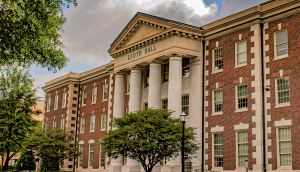 Founding Objectives
Founding Objectives
New College was founded in 1971 with two major objectives:
- Create an opportunity for a highly individualized education that enables students to draw from the resources of all University classes and faculty.
- Serve as an experimental unit with the expectation of exporting successful innovations to other sectors of the University.
Principles
A unique program at The University of Alabama with strong support from administrators, faculty throughout the campus, students, and alumni, four primary principles guide New College:
- Students are capable of accepting much of the responsibility for their own learning.
- Each individual is unique; therefore, educational programs can be developed that reflect and expand on each student’s interests and capabilities.
- Significant learning can occur outside the traditional classroom; to that end, students may receive credit for these outside learning experiences.
- Issue-focused, interdisciplinary educational experiences are highly desirable in a fast-changing society.
Commitment to Building Community
From its beginning, New College has been committed to building strong connections between a student and their advisors, maintaining the independence of the classroom, strengthening the quality of learning, and growing the community-based network of everyone involved. These standards are kept strong through individual advising and classrooms where students are actively engaged and involved.
New College LifeTrack Program
The New College LifeTrack Program was established in 1973 as the External Degree (EXD) Program as an interdisciplinary undergraduate program through which adults (25 and older) could complete requirements toward a Bachelor of Arts or Bachelor of Science degree from The University of Alabama. In January 2011, EXD launched its new name, New College LifeTrack.